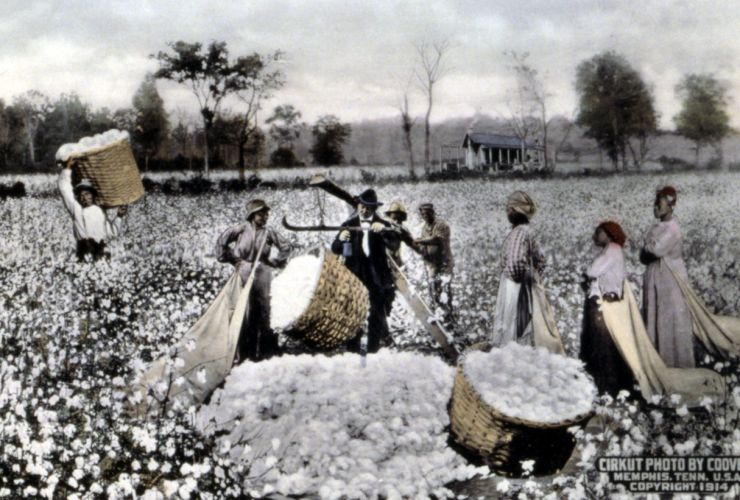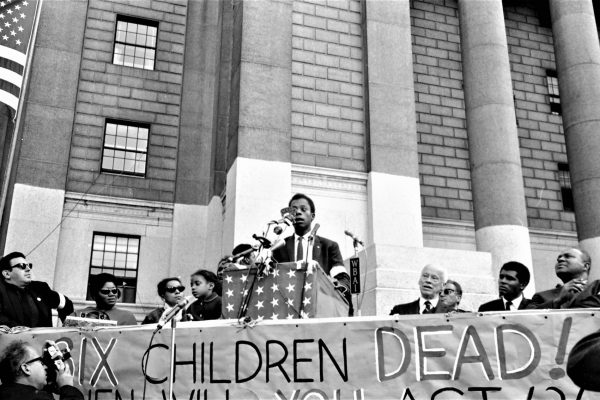Walter Johnson gives a bracing critique of two ways of telling the history of slavery. One uses the rhetoric of humanity, the other the contemporary discourse of human rights. Rejecting both these trends on ethical grounds, Johnson offers an alternative vision of politics—and thus an alternative way of writing history. By and large I agree with him, but sometimes for other reasons than he gives.
Take “humanity” first. Johnson insists that not only did victims of oppression never risk losing their humanity (an offensive question in the first place, underwritten by the logic of white supremacy); masters did not betray their own humanity, either. Instead, slavery illustrates precisely what humans so often and so willingly do to other humans. Our bleak history is not one of dehumanization or inhumanity, but instead of the all too human capacity for domination.
To this argument some will object that we must attend to the way oppressors view their own activity. After all, their goals have often self-consciously been to dehumanize. In his recent depictions of slavery across the ages, for example, historian David Brion Davis, following a classic essay by Karl Jacoby, explains that from Aristotle forward, slavery was often imagined to reduce people in bondage to the status and functions of (non-human) animals. And, as Terrence Des Pres and others have written, in Nazi camps Germans deliberately aimed at robbing Jews of their basic humanity.
But Johnson is right to worry about overinterpreting this fact. For one thing, studying the rhetoric used by oppressors does not require that we embrace it ourselves; indeed the very uses to which it has been put would seem to demand the skepticism of the historian. For another thing, engaging that very rhetoric traps liberals in a worrisome dialectic. Those who plangently retort that victims keep their humanity, Johnson bitterly records, look away not just from their bondage but also from all the forms of subordination that have proven compatible with formal emancipation. The issue is how narrowly liberals have conceived of the humanity they claim to recognize in victims. To Johnson, the liberal recognition of the agency and autonomy of the enslaved is little more than a “bourgeois” attempt to redeem victims from their past or present oppression—as if racial capitalism did not still oppress so many. And insisting on the inhumanity of the enslavers sets up domination as the unlikely exception rather than the enduring rule.
As I see it, Johnson offers this critique of a too narrow conception of humanity in order to provoke the formulation of a broader one, not to insist that we must dispense with talk of humanity altogether. Others have come to more severe conclusions. Contemporary Italian philosopher Giorgio Agamben, for example, argues that oppression (Auschwitz, in his reading) actually did succeed in turning humans into non-humans, and that it is for this very reason that we must relinquish the normative ideal of humanity once and for all. (What should replace it, in Agamben’s analysis, is not so clear.) It seems to me that Johnson does not quite make this leap; he merely wishes to lay the groundwork for a humanism that takes seriously the enduring injustices of racial capitalism. His target is not humanism tout court but a particular, if powerful and entrenched, brand of humanism: the liberalism of those for whom the humanity of the formally enslaved matters, but not that of the informally and persistently oppressed. If bourgeois emancipation is faulty, Johnson says, it is because what Karl Marx called “human” emancipation might fulfill or better fulfill our interests. Johnson’s critique of rights thus strikes me as more compelling than his critique of the rhetoric of humanity. His own premises suggest that we may need to keep the possibility of appealing to humanity around.
The other target of Johnson’s critique is the new trend in scholarship to recast anti-slavery as a human rights movement avant la lettre. It is true that there was an uptick in the usage of the phrase “human rights” in English in the 1830s—though it was nothing to the salience it achieved in the late twentieth century—and that the French revolutionary slogan of the rights of man shaped discussions of slavery. As Evelyn Brooks Higginbotham has reminded us, William Lloyd Garrison’s newspaper The Liberator had Human Rights as one of its alternate titles, and historians of various stripes—including Robin Blackburn, Jenny Martinez, Kathryn Kish Sklar, and Amy Dru Stanley—have made similar claims, either that the rhetoric of abolitionism featured appeals to individual rights or that the cause took the form of what we would now call a human rights movement.
But, like Johnson, I am skeptical. There is more reason—both historical and political—to minimize the resemblance between anti-slavery and contemporary human rights movements than to play it up.
To start, rights were the arsenal of the slaveholding class—primarily the sacrosanct right to property, as historian James Oakes has stressed when it comes to the American scene. Not that rights talk couldn’t figure on the other side of the argument, but it was rarely central—perhaps because abolitionists knew that the appeal to rights, in itself, didn’t settle any arguments in their favor. Even the invocation of rights on behalf of the enslaved was overwhelmingly restricted to national debates about whether blacks should count as fellow citizens. No one was trying to elevate rights to international law or to establish protections that would intrude upon national sovereignty—the hallmark of contemporary human rights as both an idea and an enterprise. When slavery was engaged beyond borders—for example, by a moralizing British public and state—it was rarely in terms of the human rights of slaves and frequently in frameworks that joined humanitarian pity and imperialist assumptions.
It is true that some of the techniques of abolitionism, either within nations or beyond borders, resemble those of contemporary human rights activism—from naming and shaming to consumer boycotts. The trouble with the comparison is that it selects for emphasis the forms and figures of anti-slavery that best approximate our own most familiar style of (nonviolent) agitation. Garrison, for example, is routinely credited as a human rights activist before his time, but John Brown never gets that designation. Worst of all, when we convert anti-slavery mobilization into human rights advocacy, slaves themselves—especially when they engaged in violent self-emancipation—simply drop out of the picture. Gone, apparently, are the days when, remembering the Haitian uprising in The Black Jacobins, C. L. R. James could dismiss human rights as some of the “wordy” promises of “eloquent phrasemakers” who, volunteering to “perorate” to mask their rule, were in the end willing to give up the aristocracy of the skin only when insurgents threatened violence.
It is now commonly believed that human rights are the natural responses to oppression. But the truth is that there are no such natural responses, whether ethical or practical; there are only contingent ones. How we interpret oppression when we recognize it at all is subject to a specific framework, and even if it is possible to name some frameworks as better and some worse, all are subject to critique and improvement. It is likewise almost universally assumed that the Holocaust prompted the annunciation of human rights in the Universal Declaration of Human Rights (1948) and European Convention on Human Rights (1950). That human rights seem so self-evident a response to horror says more about us than even our recent ancestors. As Marco Duranti has shown, hardly any of the advocates of the international annunciation of rights in the 1940s were specifically concerned with what the Jews had recently suffered. And at the time most Jews prioritized nationalism, in their old homes or new Jewish state; those who opted for some sort of internationalist retort to the horrors of German nationalism turned to socialism. The visibility of international human rights instead arose primarily in response to decolonization, out of the fear—sometimes justified—that fervent attacks on a white world order were perversely serving as pretexts for black despotism, with “nationalism” and “socialism” functioning as masks for the oppression of individuals. Deprived of imperialism, many liberals from the Global North rallied to the rhetoric of human rights to channel concern and spread opprobrium about suffering in the Global South.
While Johnson is right to resist the reduction of the attack on slavery and racial domination to the contemporary human rights movement, I think it is wrong to foreclose some future version of human rights that might escape its current limitations. Johnson himself says “it would be better” if human rights politics were “significantly inflected by the history of slavery,” but when he comes to his own sketch of “an account of justice,” there is no mention of what role such rights might have in it. Presumably the reason for this neglect is that individuals still suffer domination as part of collective groups, beyond the reach of rights-based remedies—a view Johnson rightly associates with the black Marxist tradition and its theory of racial capitalism, even if it is compatible with other approaches, too. What liberation from oppression modern history has witnessed so far has normally occurred through the collective self-assertion of peoples and classes, and at its most promising it reached out to all humanity as its agent and beneficiary. I infer from Johnson that what our current theories and practices of individual rights leave out are the ineluctably collective structures of oppression and the necessarily collective resistance that might break them. Individuals and their rights do have a place, indeed an essential one, in our most progressive understandings of oppression and emancipation, but it is a much smaller place than they have had lately. Current events demand this new understanding of the past, and the evidence most certainly allows it.
This forum is featured in Race Capitalism Justice, now available in reprint. Order your copy today.








